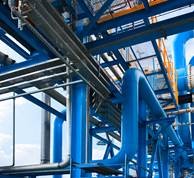Scopus Case Study: Helping a company stay ahead of the competition
In chemical R&D, it’s always a race to get to the market first with better solutions. A key to this is being able to perform research fast and efficiently. The more time and money a
company can save in developing a product, the better the chances for success become.In the “Case Study: Developing a Superior Technology” meet Ian Flemini,” a Senior Technologist and R&D Manager at a chemical company. He was asked to lead a team in developing a new, large-scale industrial method of separating gases. The goal was to create a gas separation technology based on a ceramic membrane along with an industrial process that would reduce the cost of producing various gases. The key was to save as much development time as possible.
The team found Scopus could help in two major ways during the development process. The first was in helping them to avoid reinventing the wheel. For example, when a contamination problem came up, instead of heading to the lab, the team turned to Scopus. Doing so linked them to research papers where similar problems were discussed. This helped the team find and apply solutions to resolve the problem. The second area where Scopus proved to be extremely valuable was by connecting the team to papers and presentations on the competition. From the information, the team was able to deduce the target R&D directions of competitors — and continue tracking them over time.
Scopus reduced development time for the team significantly. In fact, they quickly realized that the few hours they spent researching the contamination issue saved them a year of research. Additionally, access to Scopus assisted the team in getting the funding they needed by helping them build a case for the more economical technology that the team had developed compared to that of the competition.


